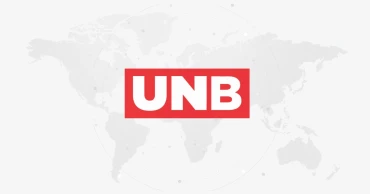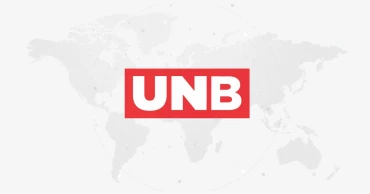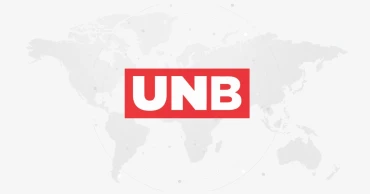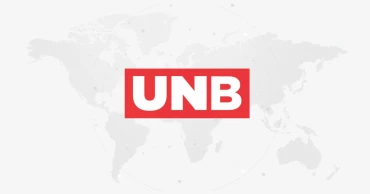Tokyo 2020
Zero risk? Virus cases test Olympic organizers' assurances
Two South African soccer players became the first athletes inside the Olympic Village to test positive for COVID-19, and other cases connected to the Tokyo Games were also confirmed Sunday, highlighting the herculean task organizers face to keep the virus contained while the world’s biggest sports event plays out.
The positive tests came as some of the 11,000 athletes and thousands more team officials expected from across the globe began arriving, having traveled through a pandemic to get to Tokyo.
Read: Tokyo's daily COVID-19 cases top 1000 for 3rd straight day
They’ll all now live in close quarters in the Olympic Village on Tokyo Bay over the next three weeks.
International Olympic Committee President Thomas Bach said last week there was “zero” risk of athletes passing on the virus to Japanese or other residents of the village. But that bold statement was already being tested.
The Olympics, which were postponed for a year because of the pandemic, are set to officially open Friday and run until Aug. 8.
The two soccer players and a team video analyst who also tested positive had been moved to “the Tokyo 2020 isolation facility,” the South African Olympic committee said. The rest of the squad members and officials had also been quarantined.
Those positive tests further stoked local fears, with the South African team scheduled to play against host nation Japan in its first game on Thursday.
Read: 6 athletes to represent Bangladesh in Tokyo Olympics
There has already been consistent opposition from the Japanese public to holding the Olympics during the pandemic, with fears that it could become a super-spreader event and cause a spike in infections among Japanese people.
Bach and the IOC have insisted it will be safe and have forged ahead against most medical advice. The IOC says it sees the Games as a chance to foster international solidarity during difficult times, but the IOC would also lose billions of dollars in broadcast rights if the Games were to be canceled completely.
Also Sunday, Team South Africa confirmed the coach of its rugby sevens team also tested positive at a pre-Olympics training camp in the southern Japanese city of Kagoshima. He was also in isolation there and would miss the entire rugby competition, the team said.
And there were other Olympics-related positive tests. Olympic organizers said that another athlete had tested positive, although they were not residing in the Olympic Village. The athlete was not named and only identified as “non-Japanese.”
The first International Olympic Committee official was reported as positive. He recorded a positive test on Saturday when arriving at a Tokyo airport. The IOC confirmed the test and identified him as IOC member Ryu Seung-min of South Korea. He was reportedly being held in isolation, too.
Former distance runner and world championship bronze medalist Tegla Loroupe, the chief of mission of the IOC’s Refugee Olympic Team, tested positive for COVID-19 before the team was to depart its Doha, Qatar, training base for Tokyo, two people with knowledge of her condition told the AP. The team delayed its arrival in Tokyo while Loroupe is expected to stay behind, according to the two people, who requested anonymity because they weren’t authorized to reveal medical information.
Organizers say that 55 people linked to the Olympics in Japan have reported positive tests since July 1, but that figure does not include athletes or others who may have arrived for training camps but are not yet under the “jurisdiction” of the organizing committee.
The British Olympic Association said six athletes and two staff in the track and field squad are isolating at the team’s pre-Olympic base in Yokohama after being deemed close contacts of a person who tested positive following their flight to Japan. U.S. tennis player Coco Gauff didn’t travel to Japan after testing positive for the coronavirus.
Tokyo reported 1,008 new COVID-19 cases on Sunday, the 29th straight day that cases were higher than seven days previously. It was also the fifth straight day with more than 1,000 cases. The Olympics will open under a state of emergency in Tokyo and three neighboring prefectures.
No fans, Japanese or foreign, will be allowed at any of the Olympic sports in Tokyo and the three neighboring prefectures. A few outlying venues may allow a small number of local fans, but it has effectively become a TV-only event.
About 200 protesters gathered Sunday outside Shinjuku station in central Tokyo, waving signs that read “No Olympics.” It was the latest in a series of small protests against the Games in the last few months.
“This is ignoring human rights and our right to life,” protester Karoi Todo told the AP. “Infections are increasing. To do the Olympics is unforgivable.”
Japanese and IOC organizers hope stringent testing protocols, where athletes, team officials and others are tested daily, will mitigate the risks posed by the thousands of foreigners arriving at once. Visiting athletes, officials and media will be in a “soft quarantine” situation and restricted to the Olympic venues, the village and designated hotels, and will be kept away from the Japanese general public. The IOC also says more than 80% of the athletes set to compete in Tokyo will be vaccinated against COVID-19.
But, despite the assurances, the positive tests five days out from the opening ceremony showed the regulations aren’t — and can’t be — foolproof.
The South African team’s chief medical officer said every member of the team had two negative tests before traveling to Japan “as per Tokyo 2020 requirements.” They also tested negative on arrival in Tokyo, Dr. Phatho Zondi said.
“Team officials and management have followed all relevant Olympic Playbook rules, protocols and procedures throughout the pre-Games and Games arrival routines,” the South African Olympic committee said.
Coach Neil Powell and the entire South Africa rugby squad were held at a quarantine facility after arriving in Japan because of a positive COVID test on their flight, Team South Africa said. They were cleared to leave, only for Powell to test positive a few days later.
Powell had been vaccinated against COVID-19 with the one-shot Johnson & Johnson vaccine in South Africa on May 24, team spokesman JJ Harmse told the AP.
South African Olympic and soccer officials didn’t immediately confirm whether the two soccer players and official who tested positive had been vaccinated, although South Africa’s Olympic committee said in May it would offer all its Olympic athletes the J&J vaccine.
The Olympics were effectively over before they began for the two soccer players and Powell as they would have to remain in quarantine for 14 days under Japanese regulations.
The only way the soccer players might be able to play is if their team made the semifinals.
4 years ago
1st case of COVID-19 found in Tokyo Olympic village
The Tokyo Olympic organizing committee said Saturday the first positive case of COVID-19 has been detected in the Tokyo athletes' village with less than a week until the opening ceremony.
The organizing committee did not identify the individual but said the infected person is a visitor from abroad involved in organizing the games, and not an athlete. The person did not share sleeping quarters with anyone, it said.
Read: Japan's Olympic security balancing act leaves few satisfied
Tokyo 2020 CEO Toshiro Muto said the individual was isolated after testing positive and transported to a dedicated medical facility outside of the athletes' village.
No specifics about the severity of the person's condition have been disclosed.
The news comes as the number of Olympic-related arrivals to Tokyo grows, with the peak expected on Sunday.
Muto informed the media of the first positive test taken at a regular screening at the village in the capital's Harumi waterfront district, but that he was unaware of the person's vaccination status.
Read: Nobel Laureate Prof Yunus to receive Olympic Laurel
According to organizers, a saliva-based test was taken on Thursday and came back positive the following day. The case was confirmed with a positive PCR test at an outpatient facility within the athletes' village.
The case is one of 15 new positive results among games participants and workers reported on Saturday, the highest daily count since the committee started compiling figures on July 1. The overall tally does not include athletes at pre-Olympic training camps in Japan.
Of the 15 infection cases, seven are contractors, six are Olympic staff members and two are members of the press. Eight traveled from abroad for the games and have been in Japan for fewer than 14 days, while seven are Japan residents.
There have been a total of 45 COVID-19 infections announced by organizers since July 1.
The village, with 21 residential buildings, 3,600 rooms and 18,000 beds, opened to athletes on Tuesday.
International Olympic Committee President Thomas Bach, who arrived in Japan on July 8, told Japanese Prime Minister Yoshihide Suga that 85 percent of athletes and officials living in the Olympic village would be fully vaccinated against COVID-19.
While in Japan, athletes are in principle restricted to the village and their training and competition venues as organizers try to enforce a "bubble" environment. They will also be subject to daily coronavirus screening.
Bach, who visited the Olympic village on Thursday morning, was reported as promising there was "zero" risk of athletes transmitting the virus into the Japanese community or to other residents of the village.
At a press conference on Saturday, he clarified the reporting over his comments, saying he was referring to zero risk of infection from three specific positive cases.
Also on Saturday, Tokyo 2020 President Seiko Hashimoto told a press conference after the IOC Executive Board meeting at a Tokyo hotel that the IOC has praised Tokyo's preparations for the games.
"We are doing everything possible to ensure that there is no COVID-19 outbreak," Hashimoto said.
"I believe successfully pushing through to the end (of the games) is the legacy," she said.
The Olympics run from July 23 to Aug. 8, and Tokyo's fourth coronavirus state of emergency is scheduled for July 12 to Aug. 22, lifting before the Paralympic Games open on Aug. 24.
4 years ago
Japan's Olympic security balancing act leaves few satisfied
Struggling businesses forced to temporarily shut down around Olympics venues. Olympic visitors ordered to install invasive apps and allow GPS tracking. Minders staking out hotels to keep participants from coming into contact with ordinary Japanese or visiting restaurants to sample the sushi.
Japan’s massive security apparatus has raised complaints that the nation, during the weeks of the Games, will look more like authoritarian North Korea or China than one of the world’s most powerful, vibrant democracies.
Read: 6 athletes to represent Bangladesh in Tokyo Olympics
The worry for many here, however, isn’t too much Big Brother. It’s that all the increased precautions won’t be nearly enough to stop the estimated 85,000 athletes, officials, journalists and other workers coming into Japan from introducing fast-spreading coronavirus variants to a largely unvaccinated population already struggling with mounting cases.
“It’s all based on the honor system, and it’s causing concern that media people and other participants may go out of their hotels to eat in Ginza,” Takeshi Saiki, an opposition lawmaker, said of what he called Japan’s lax border controls. So far, the majority of Olympic athletes and other participants have been exempted from typical quarantine requirements.
There have been regular breakdowns in security as the sheer enormity of trying to police so many visitors becomes clearer — and the opening ceremony looms. The Japanese press is filled with reports of Olympic-related people testing positive for the coronavirus. Photos and social media posts show foreigners linked to the Games breaking mask rules and drinking in public, smoking in airports — even, if the bios are accurate, posting on dating apps.
“There are big holes in the bubbles,” said Ayaka Shiomura, another opposition lawmaker, speaking of the so-called “bubbles” that are supposed to separate the Olympics’ participants from the rest of the country.
The pandemic has tested democracies around the world as they try to strike a balance between the need to protect basic rights and the national imperative to control a disease that thrives when people gather in large numbers.
Few places, however, have faced higher stakes than Tokyo will during July and August — or closer global scrutiny. The government, well aware of repeated domestic surveys that show strong opposition to the Games, argues that its security and monitoring measures are crucial as it tries to pull off an Olympics during a once-in-a-century pandemic.
But as the restrictions are tested by increasing numbers of visitors, officials have been blamed for doing too much, and too little.
The government and the Games’ organizers “are treating visitors as if they are potential criminals,” Chizuko Ueno, a professor emeritus of sociology at the University of Tokyo, said on YouTube.
Read: Tokyo Olympics rescheduled for July 23-Aug 8 in 2021
There’s also lingering resentment over a widespread sentiment that Japan is facing this balancing act because the International Olympic Committee needs to have the Games happen, regardless of the state of the virus, to get the billions of dollars in media revenue critical to its survival.
“The Olympics are held as an IOC business. Not only the Japanese people, but others around the world, were turned off by the Olympics after all of us saw the true nature of the Olympics and the IOC through the pandemic,” mountaineer Ken Noguchi told the online edition of the Nikkan Gendai newspaper.
Senior sports editors at major international media companies, meanwhile, have asked organizers to “reconsider some measures that go beyond what is necessary to keep participants and residents safe,” saying they “show a disregard for the personal privacy and technological security of our colleagues.”
Japan has fared better during the pandemic than many nations, but the Olympians will be arriving only a few months after a coronavirus spike had some Japanese hospitals nearing collapse as ICUs filled with the sick. While the surge has tempered, cases are rising enough for the declaration of yet another state of emergency in Tokyo.
One of the highest-profile security problems came last month when a Ugandan team member arriving in Japan tested positive for what turned out to be the more contagious delta variant. He was quarantined at the airport, but the rest of the nine-person team was allowed to travel more than 500 kilometers (300 miles) on a chartered bus to their pre-Olympics camp, where a second Ugandan tested positive, forcing the team and seven city officials and drivers who had close contact with them to self-isolate.
On Friday, a Uganda team member went missing, raising more questions about the oversight of Olympic participants.
So what are the restrictions that Olympic-linked visitors face?
For the first 14 days in Japan, Olympic visitors outside the athletes’ village are banned from using public transportation and from going to bars, tourist spots and most restaurants. They cannot even take a walk, or visit anywhere, in fact, that’s not specifically mentioned in activity plans submitted in advance. There are some exceptions authorized by organizers: specifically designated convenience stores, takeaway places and, in rare cases, some restaurants that have private rooms.
Athletes, tested daily for the coronavirus, will be isolated in the athletes’ village and are expected to stay there, or in similarly locked-down bubbles at venues or training sites. Those who break the rules could be sent home or receive fines and lose the right to participate in the Games.
Everyone associated with the Olympics will be asked to install two apps when entering Japan. One is an immigration and health reporting app, and the other is a contact tracing app that uses Bluetooth. They will also have to consent to allowing organizers to use GPS to monitor their movements and contacts through their smartphones if there’s an infection or violation of rules.
“We are not going to monitor the behavior at all times,” Organizing Committee CEO Toshiro Muto said. “The thing is, though, if there should be issues pertaining to their activity then, since the GPS function will be on, we’ll be able to verify their activities.”
Japan also plans to station human monitors at venues and hotels, though it’s not yet clear how many.
“We will control every entry and exit. We will have a system that will not allow anyone to go outside freely,” Olympic Minister Tamayo Marukawa said.
Other nations, both democratic and autocratic, have also tried to control and monitor behavior and businesses during the pandemic.
In the United States, for instance, NFL teams tracked their athletes in the team facilities. South Korean health authorities have aggressively used smartphone GPS data, credit-card transaction records and surveillance videos to find and isolate potential virus carriers. Tracking apps are used to monitor thousands of individuals quarantined at home.
In China, mask mandates, lockdowns confining millions to their homes and case tracing on a nationwide scale have faced little or no opposition. North Korea has shut its borders even tighter, skipped the Olympics and canceled or seriously curtailed access for foreign diplomats, aid workers and outside journalists.
While the security restrictions in Japan will be a hassle for visitors, they could also hit locals hard.
Hiroshi Kato, a fencing instructor, said he worries that he’ll lose even more business than he did during the pandemic because he’s been ordered to move from the building where he works across from the main Olympics stadium from July 1 to Sep. 19, for unspecified security reasons.
“I feel helpless,” he said in an interview. “To safely hold the Games, some restrictions are understandable … but (the organizers) knew this for a long time and perhaps could have provided some assistance for us.”
4 years ago
Tokyo's daily COVID-19 cases top 1,000 for 3rd straight day, just a week before Olympics
The Tokyo metropolitan government reported 1,271 new daily COVID-19 cases on Friday, topping 1,000 for the third straight day just a week before the Tokyo Olympics start.
The figure in the capital, which is currently under a fourth COVID-19 state of emergency amid a resurgence of infections, hit 1,308 on Thursday, its highest level since late January.
Read: 6 athletes to represent Bangladesh in Tokyo Olympics
The capital's latest number topped the figure posted in the week earlier for the 27th straight day, raising its seven-day rolling average of infections per day to 946.3, up 37.8 percent from the previous week.
Health experts advising the metropolitan government have warned the moving average could jump to 2,406 by Aug. 11, shortly after the Olympics end on Aug. 8, topping the third wave that swept across Tokyo in the winter.
Read: Tokyo Olympics rescheduled for July 23-Aug 8 in 2021
Public concerns remain high that the Olympics could become a superspreader event with the spread of the highly contagious Delta variant of the coronavirus, first found in India.
4 years ago







